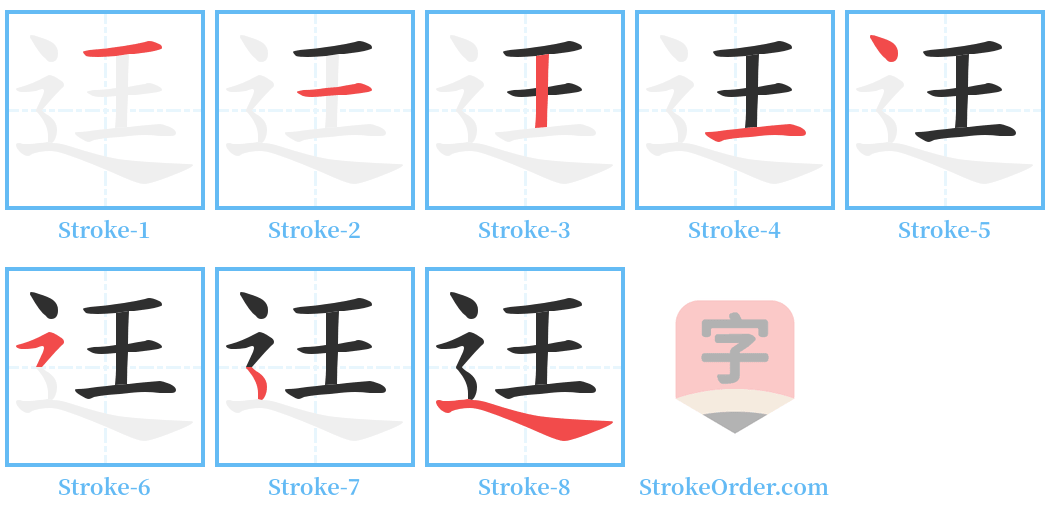迋 Stroke Order
Animated Stroke Order of 迋

Stroke Order Diagrams for 迋

Information of 迋
Pinyin
wàng、 kuāng
Radical
辶
Strokes
7 strokes
Usage
★★
Definition
迋
1. To go, to proceed.
- 往,前往:“君使子展~劳于东门之外。”
- Go, proceed: "The lord sent Zizhan to toil beyond the eastern gate."
2. Verb: To go.
- 《说文解字.辵部》:“迋,往也。”
- "Shuowen Jiezi, Section on Foot: '迋 means to go.'"
- 《左传.襄公二十八年》:“君使子展迋劳于东门之外而傲。”
- "Zuo Zhuan, Year 28 of Xiang Gong: 'The lord sent Zizhan to toil beyond the eastern gate.'"
3. Ancient usage of “诓” (to deceive).
- 古通“诓”,欺骗:“无信人之言,人实~女。”
- An ancient term meaning to deceive: "Do not believe the words of dishonest people; they truly deceive you."
4. Ancient usage of “恇” (to intimidate).
- 古通“恇”,恐吓:“子无我~,不幸而后亡。”
- An ancient term meaning to intimidate: "Do not fear me; if unfortunate, then I will be gone."
5. Verb: To deceive.
- 《诗经.郑风.扬之水》:“无信人之言,人实迋女。”
- "Shijing, Zheng Feng, Yang Zhi Shui: 'Do not believe the words of dishonest people; they truly deceive you.'"
- 《左传.定公十年》:“是我迋吾兄也。”
- "Zuo Zhuan, Year 10 of Ding Gong: 'This is my deception towards my brother.'"
6. Verb: To intimidate.
- 《左传.昭公二十一年》:“子无我迋,不幸而后亡。”
- "Zuo Zhuan, Year 21 of Zhao Gong: 'Do not fear me; if unfortunate, then I will be lost.'"